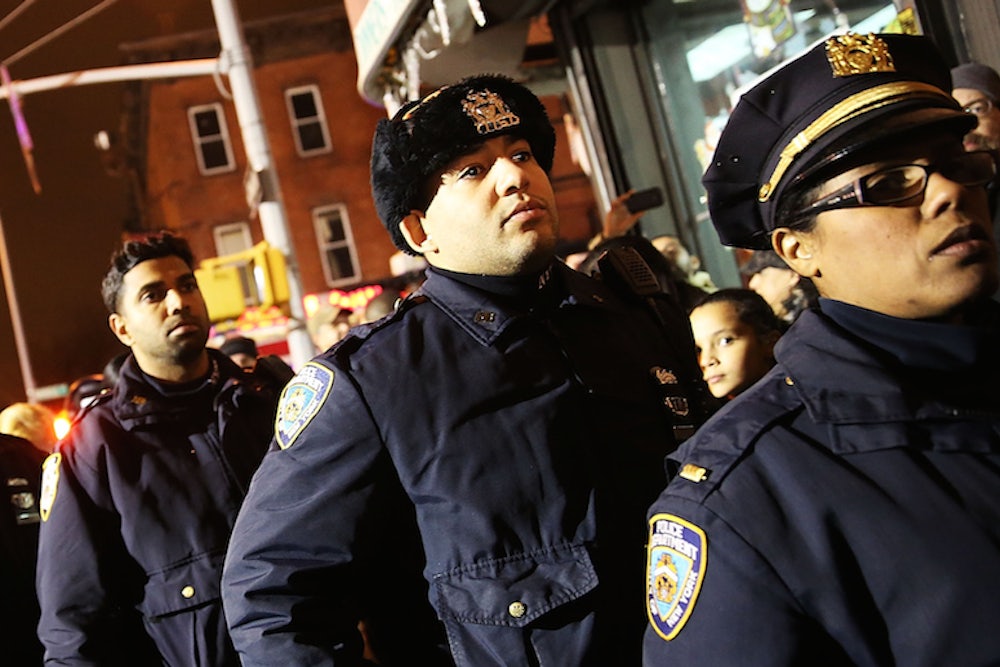The last year when Ismaaiyl Brinsley—the man who killed two New York City cops on Saturday—should have been able to buy or carry a gun was 2008, when he was convicted of felony shoplifting, according to the Atlanta Journal-Constitution. In 2011, he pleaded guilty to more felonies after he shot a woman's car with a stolen handgun. Over his life, he had 19 arrests in Ohio and Georgia.
As a felon, Brinsley was barred under federal law from buying a gun. Had he undergone a background check, he would have failed it and authorities could be notified. Yet the National Rifle Association argues that bad guys will get their hands on guns regardless of the law. The lobby points to violence in states with strong gun laws as evidence of gun control's ineffectiveness.
In fact, it's weak gun laws that enable felons, domestic abusers, and the mentally ill to arm themselves. Whereas licensed gun sellers must conduct background checks, unlicensed secondary market sellers face no such requirement in more laissez-faire states.
Police know that background checks make their jobs easier—and safer. New York Police Department Commissioner Bill Bratton and his predecessor Raymond Kelly have supported stricter regulations. Last year Bratton said the most successful focus for cutting gun violence "is going to be on the licensing and background checks. Because that's the heart of the problem—who gets access to the guns?" In a New York Daily News op-ed, Kelly pointed to the staggering number of guns used in New York City crimes that come from states with weaker gun laws.
“The most recent ATF crime gun trace data for New York City show that 2,186—or 90%—of 2,433 traceable guns used in crimes in the five boroughs came from out of state, up from 85% in 2009," he wrote. "This, even as the number of shootings in New York City has declined approximately 30% in both incidents and victims so far this year, and the proportion of young people carrying guns here hit an all-time low.”
It's likely that Brinsely's gun came from outside the state, too. Though New York and Maryland require background checks on all gun sales, the black market in both is "fueled by weaker gun laws on secondary market sales in other states," says Arkadi Gerney, a gun violence expert at the Center for American Progress. In such cases, a would-be shooter can buy weapons at gun shows or from private sellers, no questions asked. Such a sale could occur in front of a police officer, out of the trunk of a car, and the officer would have no grounds to interrupt. It should be harder.
